'Don't forget about us,' Afghan women say, 1 year after Taliban's return to power

One year after the fall of Kabul, life for Afghanistan's women continues to worsen amid rising violence and the regression of human rights.
"Don’t forget about us," one Afghan woman, who asked us to call her Atefeh, told ABC News.
MORE: How are the Taliban treating Afghan women and girls?
On Aug. 15, 2021, two weeks before the U.S. military was to complete its withdrawal from Afghanistan, the Taliban entered Kabul and captured the capital as the culmination of a weeklong offensive in which the hardline Islamist movement rapidly seized control over most of the country, sometimes with barely a fight. A few days later, at the first press conference since returning to power, a Taliban spokesman promised that women in Afghanistan would be allowed to work and study "but within the framework of Islam."
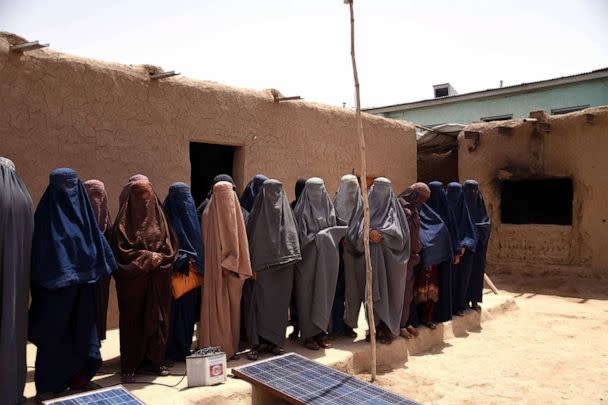
Since then, the Taliban has banned women from having jobs amid an already tenuous economy, which collapsed almost overnight after the world cut off funding to Afghanistan last year. According to a study released by United Nations Development Programme, an estimated 97% of Afghanistan's population could be living below the poverty line by mid-2022, making the $1,000 visa fee to leave the country virtually impossible to secure. The Taliban has also banned women from traveling alone without a male guardian, which has confined many to their homes.
The Taliban's requirement for women to wear full body coverings in public was also reintroduced, while the ban on girls attending secondary schools has resulted in 46% of young women not being in education, according to a report by Save the Children.
MORE: How some in Afghanistan have reacted to the burqa mandate
Women who peacefully protested against these oppressive rules have been threatened, arrested, detained, tortured and forcibly disappeared, according to a report by human rights group Amnesty International.
"This suffocating crackdown against Afghanistan's female population is increasing day by day," Amnesty International Secretary General Agnes Callamard said in a statement last month.
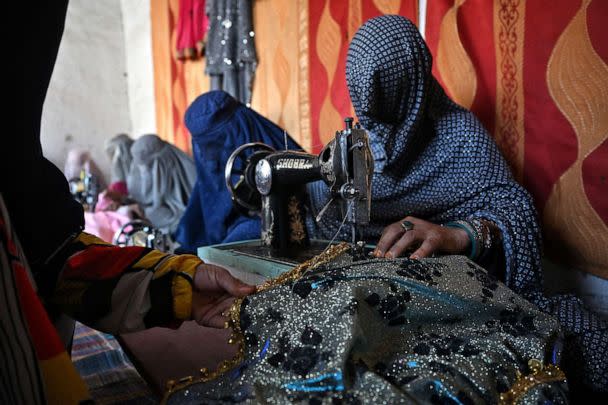
Another Afghan woman, who asked us to call her Yalda, told ABC News she has been unable to leave the country and fears for her safety. The journalist and women rights activist joined protests alongside colleagues, former classmates and teachers.
"We didn't want ourselves and future generations of women to go through what our parents previously have," Yalda told ABC News.
MORE: Afghan journalists who fled the Taliban say they're in limbo in Pakistan
Yalda said she has had her visa applications repeatedly rejected and is now in hiding to avoid arrest.
Those who have managed to flee to neighboring nations may remain in danger due to challenges surrounding the cancellation and extension of visas.
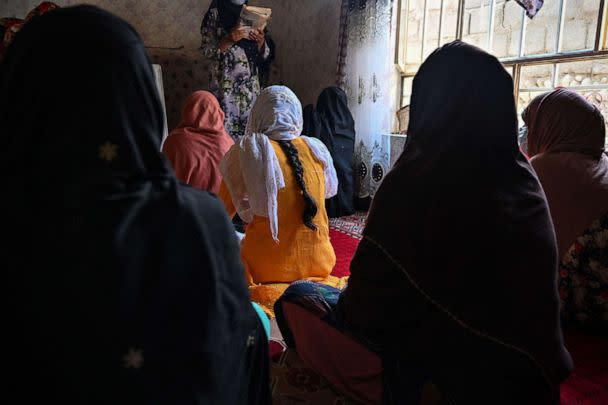
Atefeh, a medical practitioner turned activist, was able to leave Afghanistan with help from a charitable organization, after leading a women's protest movement against Taliban rule that has since been reduced from 100 to 50 people. Many of the protesters were arrested, including Atefeh, who said she was imprisoned and tortured for her involvement before being released.
"The Taliban are a terrorist group," Atefeh told ABC News when asked why she chose to protest. "They closed schools [for girls], all women became jobless."
Atefeh now resides in a neighbouring country but said she fears deportation and is also in hiding.
MORE: Family of 5 in hiding from Taliban pleads for help getting out of Afghanistan
Task Force Nyx, a women-led, all-volunteer NGO, has helped hundreds of vulnerable and marginalized people leave Afghanistan and resettle elsewhere since the Taliban's return to power. The group's founders, Laura Deitz and Sara Gilliam, said it's become even more difficult to evacuate those in immediate danger due to the challenge of securing proper documentation, rising financial costs and a recent drop in donations. They compared the dire situation to having Afghan women and girls "locked ... in a burning building."
"We have put the kerosene around it, we've thrown away the key and then we've lit it on fire -- that is what it feels like," Deitz told ABC News.
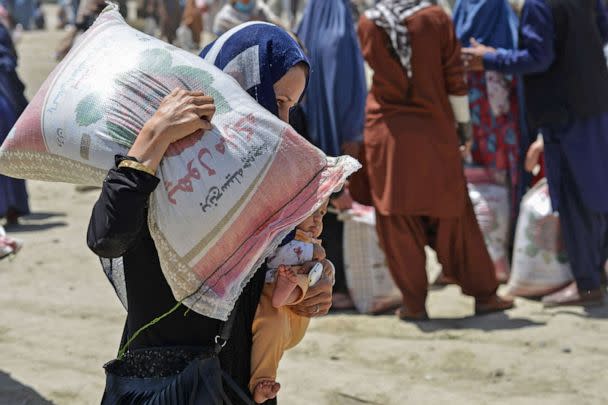
Still, Deitz and Gilliam are hopeful that the upcoming anniversary of the Taliban takeover will result in increased media coverage and possibly more donations, so Task Force Nyx can help evacuate more people.
The Taliban emerged out of the Afghan Civil War and took control of the country in the early 1990s, enforcing its strict interpretation of Sharia, or Islamic law. The Taliban regime ruled over some 90% of Afghanistan until late 2001, when the United States invaded the country to overthrow the Taliban and dismantle al-Qaeda after the Sept. 11 terrorist attacks.
Taliban fighters retreated across Afghanistan's porous border into neighboring Pakistan, where they regrouped to wage a 20-year insurgency against the U.S.-backed government in Kabul.
MORE: Young Afghan woman, separated from family in US, pleads for help getting out
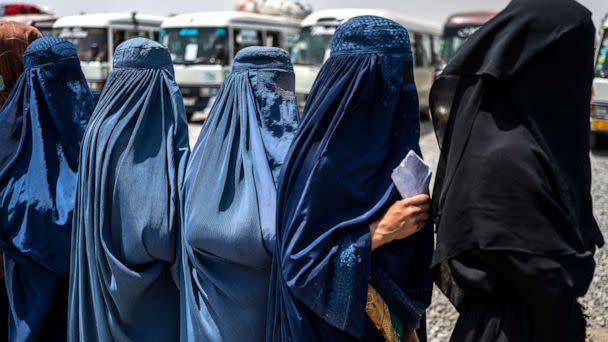
Speaking to ABC News, both Atefeh and Yalda stressed the importance of the international community not recognizing the Taliban as the official government of Afghanistan. No country has yet recognized the Taliban as a governing body.
"Do not forget about Afghanistan's women," Yalda said.
ABC News' Somayeh Malekian and Morgan Winsor contributed to this report.
'Don't forget about us,' Afghan women say, 1 year after Taliban's return to power originally appeared on abcnews.go.com

 Yahoo Movies
Yahoo Movies 